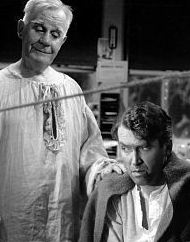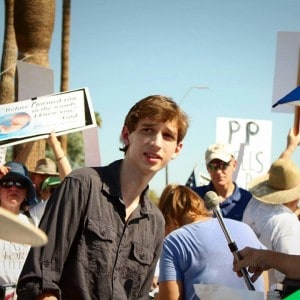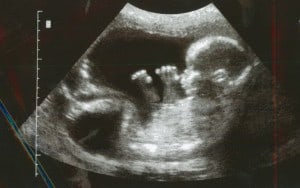A toast to my big brother George: The richest man in town.
—Harry Bailey in Frank Capra’s It’s a Wonderful Life1—
January 22, 2017 marks the 44th anniversary of Roe v. Wade and Doe v. Bolton. In the 44 years since the Supreme Court issued those egregious and unconstitutional rulings, the lives 58 million children have eliminated! Considering these lives alone, calculating the enormity of this loss to the United States and the world truly is impossible. Yet we need to understand that the lives of many millions more also are missing because of abortion. I addressed this issue in a Word Foundations blogpost dated September 4, 2015.
—B. Nathaniel Sullivan—
The 1946 film It’s a Wonderful Life, directed by Frank Capra and starring Jimmy Stewart and Donna Reed, has to be one of the best loved and most watched films of all time. In the movie, Stewart plays George Bailey, a man who dreams of adventure but remains stuck in Bedford Falls, New York, running his family’s building and loan. In situation after situation, George makes sacrifices to benefit others, yet somehow doesn’t ever seem to get a break himself.
You remember the story. The pressures on George mount, climaxing when he contemplates committing suicide by jumping from a bridge into the river. Clarence, the angel who has been assigned to George, jumps in the river himself and George pulls him out. In the aftermath of this rescue, Clarence gets to show George what Bedford Falls would have become had George never been born—and the revelations are startling.
When he was 12, George had rescued his brother Harry when Harry accidently fell through thin ice. Later Harry became a war hero, but in the world where George never had been born, Harry drowned as a kid. When George discovers Harry’s tombstone, Clarence explains, “Your brother, Harry Bailey, broke through the ice and was drowned at the age of nine.”
“That’s a lie!” responds George. “Harry Bailey went to war! He got the Congressional Medal of Honor! He saved the lives of every man on that transport!”
“Every man on that transport died,” Clarence says. “Harry wasn’t there to save them, because you weren’t there to save Harry.”2
This was typical. George had kept the druggist for whom he worked as a boy from poisoning a customer by mistake. Through his honest dealings and upright business practices, he also had kept Bedford Falls from being acquired by the greediest, meanest man in town, Henry F. Potter. Everyone in Bedford Falls was better off due to George Bailey’s life and influence.
“Strange, isn’t it?” observes Clarence. “Each man’s life touches so many other lives. When he isn’t around he leaves an awful hole, doesn’t he?”3
Think about that for a minute. One life “touches so many other lives.” When a man or woman is missing, there’s an “awful hole.”
While in the realm of cinema, George Bailey had been born and as an adult had the unique opportunity to see the difference he had made in a multitude of lives, we cannot even begin to fathom the gaping holes that surround us every day because 55 million people whose lives were snuffed out by abortion since 1973 aren’t with us. How much better and richer would our world be had these individuals been allowed to live, and what tangible and intangible losses are we experiencing because they weren’t?
Jesse Friedman is a 16-year-old high school student who understands this issue. Jesse is a spokesman for Voices for the Voiceless,4 an organization created by his older brother Josiah to tap the creative energy of students to advance the pro-life movement. Their brother Sam is the organization’s web developer.
Jesse delivered a powerful speech at the Chandler, Arizona Planned Parenthood facility on August 22, 2015. The protest at which he spoke was one of hundreds nationwide (go here and here) held on the same day.5 Here are some of Jesse’s remarks.
At the age of 19, my mom found out that she was pregnant. She was scared, and she felt alone. When my mom was confronted with this situation, she went to a local Planned Parenthood. They didn’t tell her all of her options, but referred her for an abortion. And today, my family is one person short of what it should’ve been. I have two brothers, but I should have three. What Planned Parenthood offers women is surely helpful at the time — after all, it gives women a chance to escape the hardships of carrying their pregnancy to term. But in the end, abortion takes away a life and leaves those affected by it thinking about what could’ve been.
I’ve lost potential friends and family members to the atrocity of abortion. And I realize that maybe those friends and family members were conceived in unfortunate circumstances, perhaps a lack of financial provision or a lack of a two-parent home — but I can’t help but think of how different my life would be if they were here. I can’t help but think of the kind of world-changers that my generation has lost.
Planned Parenthood defends their selling of fetal tissue with the fact that it could lead to scientific discoveries. They tell us that this tissue could be the key to curing cancer. But I have another question for you, Planned Parenthood. What if in your hopes to cure cancer with the aid of fetal tissue, you aborted the curer of cancer himself? We’ll never know how abortion has changed our world, but I can’t shake the thought that some of those 55 million aborted children since 1973 might’ve become the next President of the United States, or the next great musician, or the next astronaut. When 22% of my generation was aborted, 22% of my generation’s potential went with it.6
Also, consider this: The children and grandchildren who would have been born to those 55 million individuals and their children also are missing. In 2012, the number of persons missing due to abortion was calculated to be more than 117 million—“roughly a third of our population.”7 Thus, no living person ever can say he or she has been untouched by abortion. Moreover, with such a huge number of consumers and taxpayers out of the picture, it is no wonder the United States is experiencing such deep economic woes: “The federal revenue loss due to abortion mirrors our federal debt. A national economy cannot be sustained when a third of the population is missing.”8
Jesse did not mention these economic implications in his speech, but he didn’t have to, because they rest on everything he said. You can read Jesse’s speech in its entirety here, but before you do, let his main point sink in: We cannot even begin to calculate the gut-wrenching losses that abortion has brought to us as individuals, and to our nation, and to our world.
The atrocity of abortion has to stop! Defunding Planned Parenthood is the next step. This should be easy, but it won’t be, because the opposition is strong. Even so, we must continue to be, as Josiah Friedman’s organization declares in its name, Voices for the Voiceless. We do this because each person is of infinite value.
We do it because, in the articulate words of Clarence Odbody (Angel Second Class), “Each man’s life touches so many other lives. When he isn’t around he leaves an awful hole, doesn’t he?”9
Copyright © 2015 by B. Nathaniel Sullivan. All Rights Reserved.
Notes:
1,2,3http://www.imdb.com/title/tt0038650/quotes
4http://voicesforthevoiceless.org
6https://medium.com/@_vftv/planned-parenthood-we-don-t-need-you-9c3d185f1571
7,8http://www.lifenews.com/2012/11/06/abortion-has-destroyed-117-million-people-in-the-united-states/
9http://www.imdb.com/title/tt0038650/quotes



